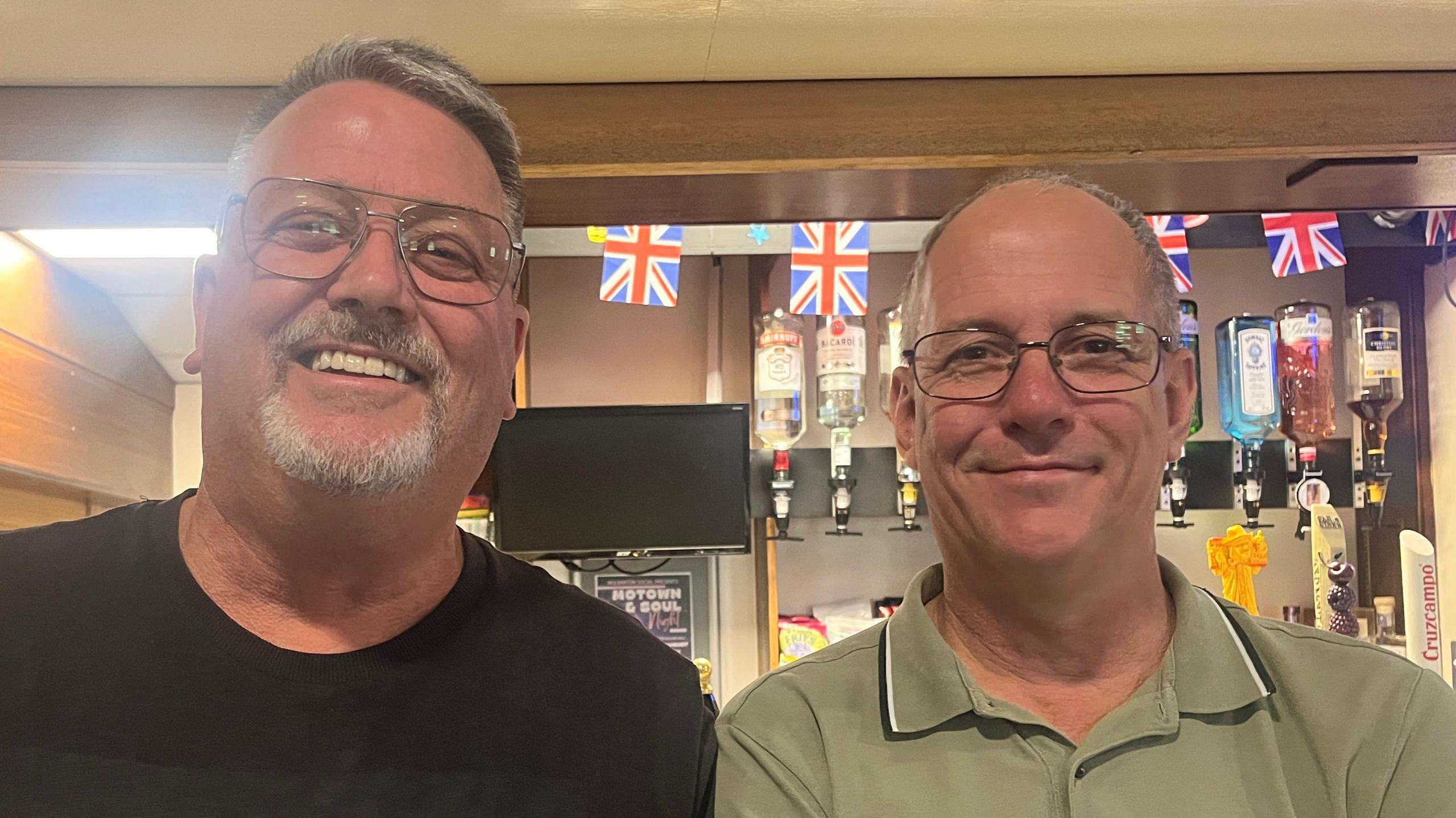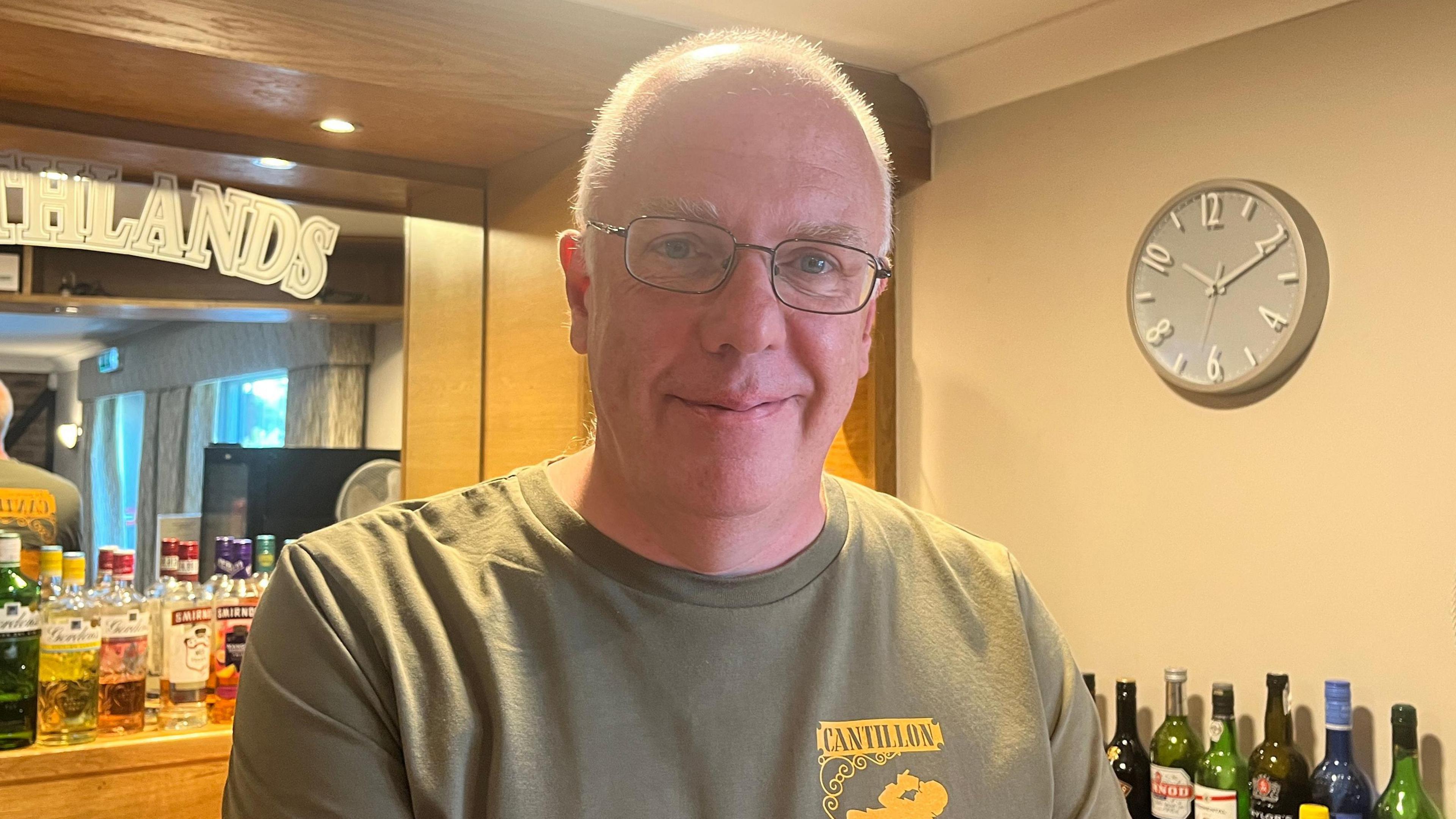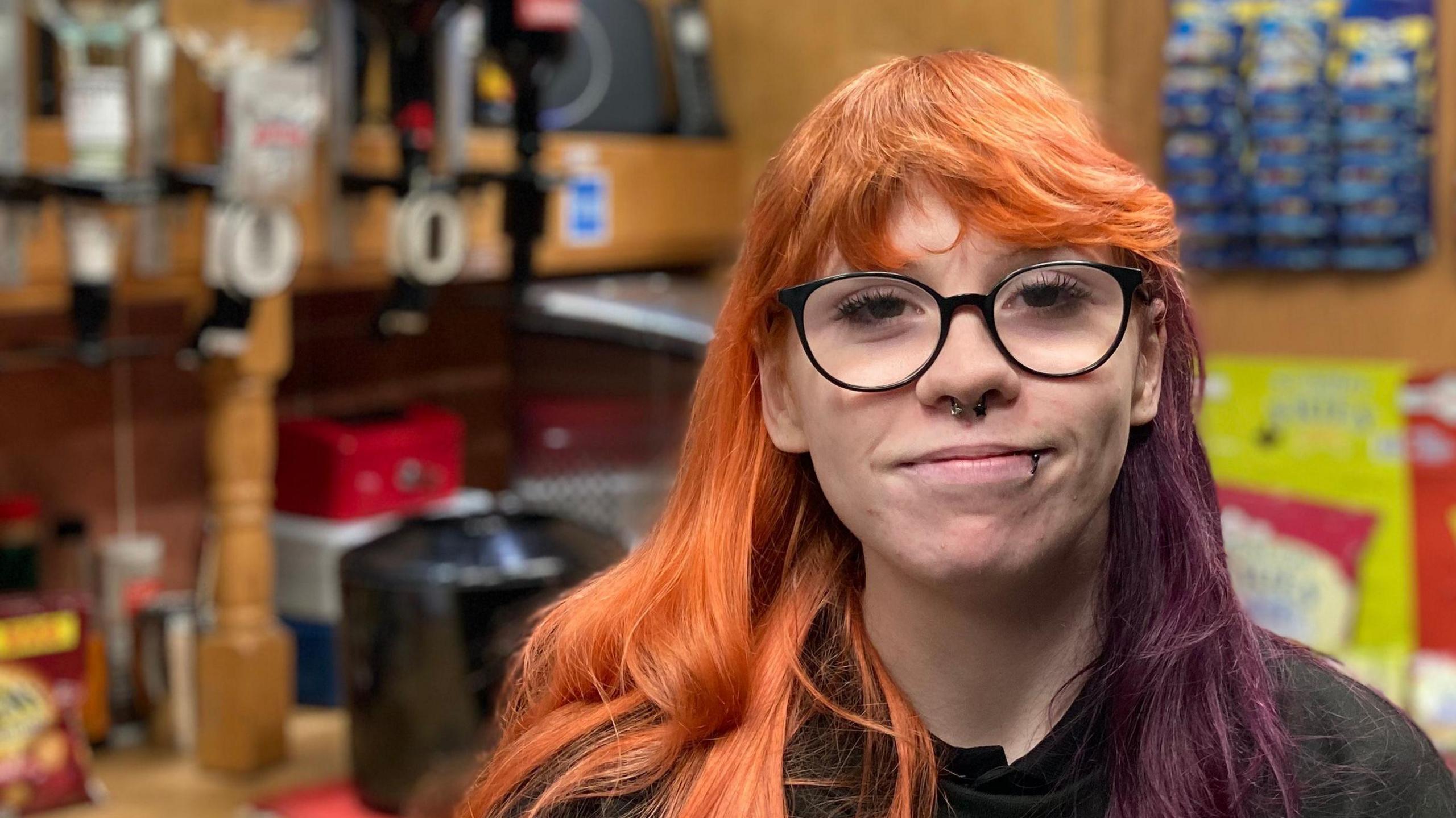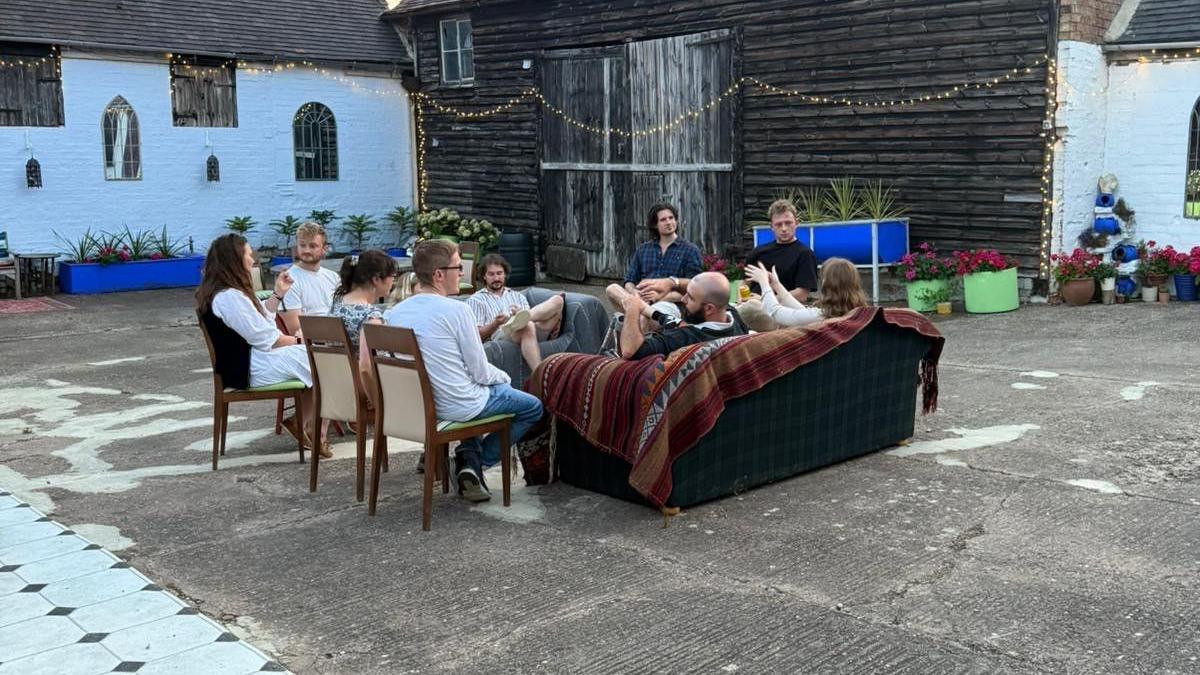Social clubs warn locals to 'use it or lose it'

Mick Sutcliffe and Adrian White said many of their events were not well attended
- Published
Social clubs warned residents to use them, or risk losing them.
A national survey of social clubs by the Centre for Democratic Business, external earlier this year found that 83% of venues describe their financial health as poor to fair.
Mulbarton Sports and Social Club in South Norfolk said it had found it difficult to get over debt brought on by the pandemic.
Its chairman, Mick Sutcliffe, said: "People need to support the social clubs... If people don't use them, they'll lose them."
The social club was heavily supported by Mulbarton Wanderers FC, but when the football season ended, Mr Sutcliffe said the club was not as busy.
"It's not easy, especially in the summer," he said.
Adrian White, who manages the club, added: "We put bands on in here and they're generally not that well supported, especially for the cost of putting them on."
'Big reset'
Mr Sutcliffe said the club was still trying to get over financial issues brought on by the pandemic.
"It's really hard since Covid, we've never, ever got over the debt," he said.
"The better we do, the more tax, VAT and wages we're paying, we're digging ourselves a hole."
He said because of this, the club had now been incorporated as a Community Interest Company (CIC).
"The reason we became a CIC is so we can apply for grants, and it's a big reset for it," Mr Sutcliffe added.
"It gives us a chance to get money behind us and get things going again."

Paul Grainger said the pandemic affected young people going out
Paul Grainger runs the Heathlands Social Club in Blofield Heath, Norfolk, and said he noticed a change after the pandemic.
"What we find is that things are different post-Covid compared to what they were before," he said.
"There are fewer people coming out socially, and they're more tuned into how they spend their money."
Mr Grainger believed the pandemic also had an impact on the number of young people coming through the club's doors.
"I think there's a whole generation of people that - perhaps because of Covid - are not used to going out into licensed premises," he added.
"We get a really good mix of people here, but definitely there's an issue with younger people coming out."
He agreed that people needed to use their clubs or they could risk losing them.
"It would be really nice to see more people here," he said.
"It's that old adage of if you don't use it, you're going to lose it... We want more and more people to come and see us and use our facilities."
'Community spirit'
The Club and Institute Union, who represent social clubs across the UK, said it had noticed a drop in the number of clubs in operation.
In the 1970s, about 4,500 venues were members of the Club and Institute Union, now, that figure has fallen to 1,100.
General secretary Ken Green said the failure of some clubs predominantly came down to the COVID-19 pandemic.
"Community spirit seems to be subsided since Covid... It really is a case of use it or lose it," he said.
"There is nothing that anyone can put their finger on about why some have recovered and some haven't."
Get in touch
Do you have a story suggestion for Norfolk?
Follow Norfolk news on BBC Sounds, Facebook, external, Instagram, external and X, external.
- Published23 December 2024

- Published30 June

- Published31 May
